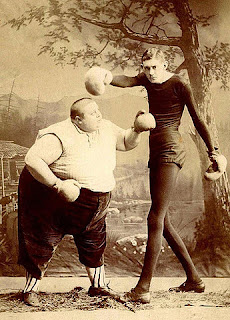A defensive posture has always been a necessary feature of human
life, even though these days we rarely find ourselves living in close proximity to enemy
tribes or natural predators. Apart from microorganisms I suppose.
Yet even ordinary people with no known enemies have to
develop a range of defensive strategies, if only to remain sane. Defence
against all kinds of minor and not so minor niggles, problems and threats, most of them sponsored by the
state, its lackeys and even transnational bureaucracies.
Everyone is their own best judge of their own lifestyle and
on the whole we know that whatever it is, the state doesn’t approve. Try
driving for example. Count the road signs...
...aaargh - NO - don’t as the bloody road signs - at least
not while driving. I might be accused of giving unofficial and therefore unsafe
advice.
Modern life is like that though isn’t it? Cover your tracks,
cover your back, don’t give hostages to fortune, stay alert, stay smart, keep
your head down but no so low that it disappears up your ass.
A feature of modernity is how defensive posture of
ordinary people towards those in power hasn’t gone the way of the sackbut.
Somehow I can’t help feeling that in a real, adult, mature democracy it would
have.
Undoubtedly, defensive errors in modern life have far less
drastic consequences than they did not so long ago. The next time I steal a
sheep, I know I won’t be hanged for it.
...aaargh - NO – I don’t really steal bloody sheep.
There it is again. Instead of being designed to avoid an
early death, modern defensive living has become vastly more complex, covert and
diffuse. The developed world has flattened it out and made it more pervasive rather than
getting rid of it.
To my way of thinking, it seems to cause a strange,
low-level miasma of what we might call anxiety-lite. The miasma never sleeps,
never retracts anything, is never wrong and never runs out of new ways to annoy
us, trip us up, make us angry, sad, weary or generally screw up our
lives.
It requires a similar level of alertness to motorway driving.
Everything is very familiar and clearly understood, but there are risks
attendant on a wrong move.
Or the kind of alertness we need in filling out a tax
return, finding a reliable plumber - or even bringing up a child for heaven's sake.
Most of the guff we have to fend off is not desperately problematic, but it consumes our lives in hopelessly unproductive ways. It sucks away the spiritual side of life, the joy of living, the pleasures of contemplation.
We live with niggles all
the time and it’s better than a gibbet at the crossroads, but there is such a
lot of it, such a vast number of rules, regulations, petty conventions and impertinent intrusions.
It doesn’t cause us to hunker down in our bunker, or at
least most of us don’t react in that way, but we have to live with it every day. Okay we
manage well enough most of the time, but it isn’t necessary is it? Life doesn’t have to be like
this.
Or maybe it does. Maybe
evolution hasn’t finished with us yet.










